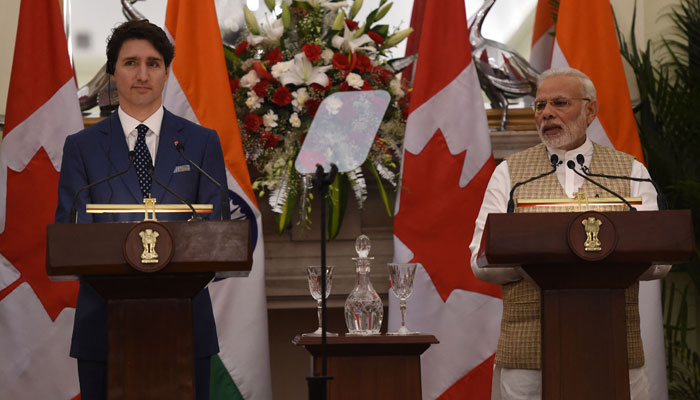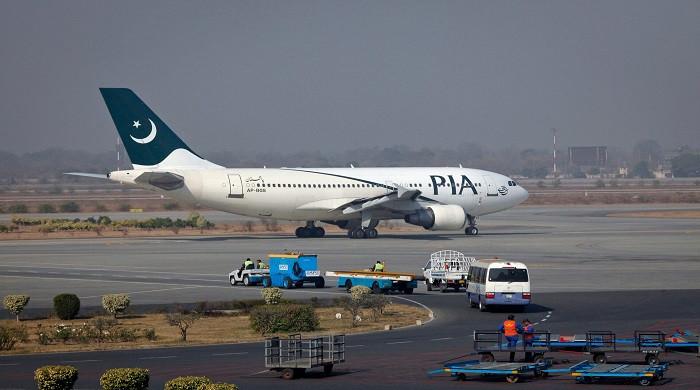What India-Canada tensions could escalate into?
Rising tensions between India and Canada take a toll on trade talks between the nations
September 19, 2023

Canadian Prime Minister Justin Trudeau's recent remarks accusing India of Hardeep Nijjar's assassination have soured the relations between the nations since his return home from the G20 summit in India
Trudeau on Monday claimed that there are "credible allegations of a potential link" between the murder of Khalistani leader Hardeep Singh Nijjar in June and Indian government agents.
The allegations were followed by the expulsion of an Indian of a "top Indian diplomat", announced by Mélanie Joly, Canada's foreign minister.
On Tuesday, New Delhi dismissed the allegations as "absurd", and asked Canada instead to crack down on anti-India elements operating in its territory.
As tensions rise between India and Canada, trade talks between the two countries have taken a hit as well.
Here is what is at stake for both countries:
How are trade talks affected?
Canada said this month it had paused talks on the proposed treaty with India, just three months after both said they aimed to seal an initial pact this year.
Industry estimates show the Comprehensive Economic Partnership Agreement (CEPA) between Canada and India could boost two-way trade by as much as $6.5 billion, yielding a GDP gain of $3.8 billion to $5.9 billion for Canada by 2035.
What are the key items of trade?
Steady growth has seen goods trade rising to $8 billion in 2022, with Indian exports to Canada touching $4 billion and imports from Canada also worth $4 billion.
India's growing demand for imported lentils has benefited Canadian farmers, while Indian pharmaceutical and software companies have expanded their presence in the Canadian market.
Major imports from Canada include energy products such as coal, coke and briquettes, besides fertilizers, while India exports consumer goods, garments, and engineering products such as auto parts, aircraft equipment, and electronic items.
What is the investment position?
Canada is India's 17th largest foreign investor, pouring in more than $3.6 billion since 2000, while Canadian portfolio investors have invested billions of dollars in Indian stock and debt markets.
The Canadian pension fund, CPP, has increased its investment in Indian markets to about $15 billion, in areas such as real estate, renewables, and the financial sector by the end of the last fiscal year in March 2023.
How have corporates benefited?
More than 600 Canadian companies, including Bombardier and SNC Lavalin, have a strong presence in India, while more than 30 Indian companies, such as infotech majors TCS, Infosys, and Wipro have invested billions of dollars in Canada, creating thousands of jobs.
What is the role of Indian students in Canada?
Since 2018, India has been the largest source country for international students in Canada.
In 2022, their number rose 47% to nearly 320,000, accounting for about 40% of total overseas students, the Canadian Bureau of International Education says, which also helps universities and colleges provide subsidised education to domestic students.
What are the implications for Sikhs?
Many analysts say the worsening ties could affect the economic interests of thousands of Sikh families in India's Sikh-majority state of Punjab in the north since they have relatives in Canada, who remit millions of dollars back home.
The share of Canada's Sikh population has more than doubled in 20 years, to 2.1%, according to the country's 2021 census, as a large number of Sikhs have migrated from India in search of higher education and jobs.











